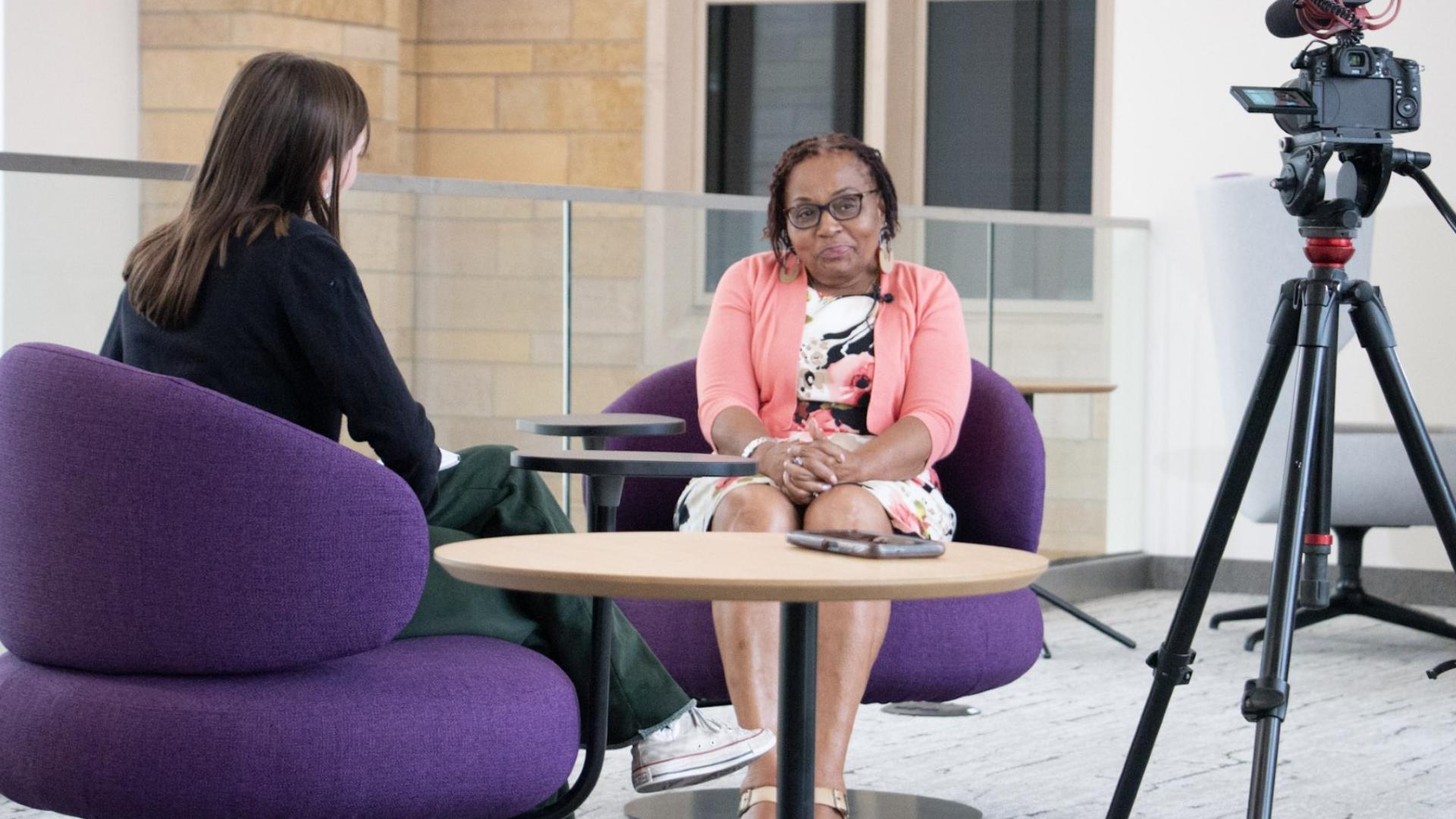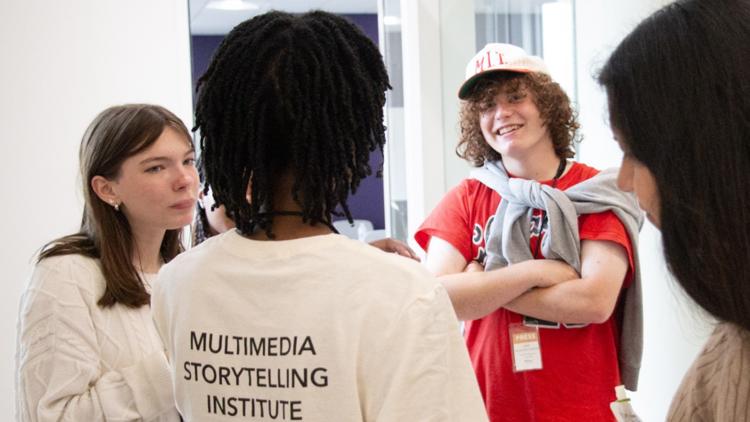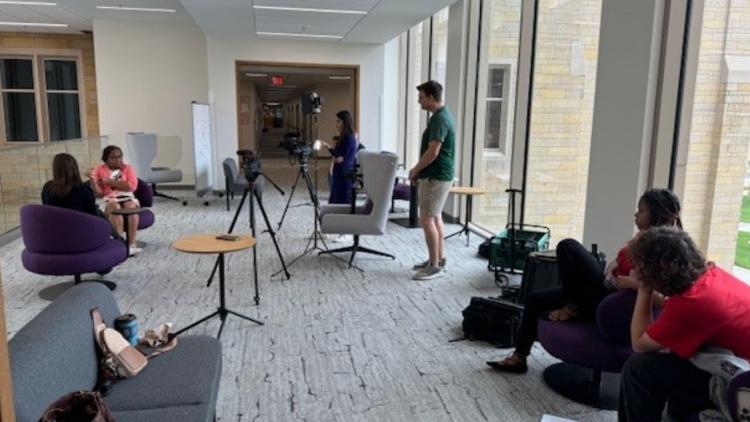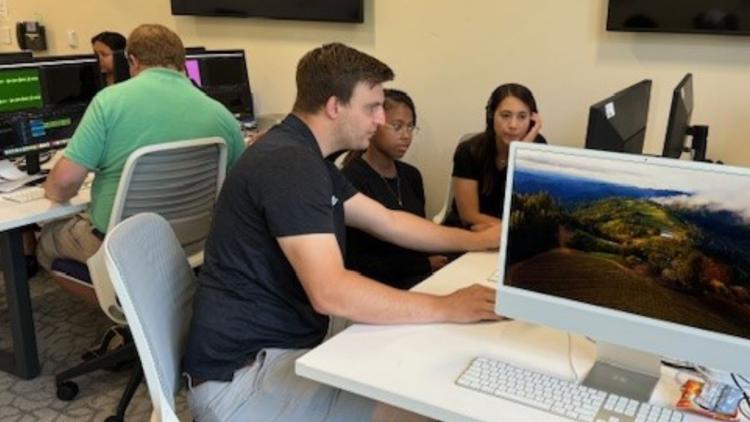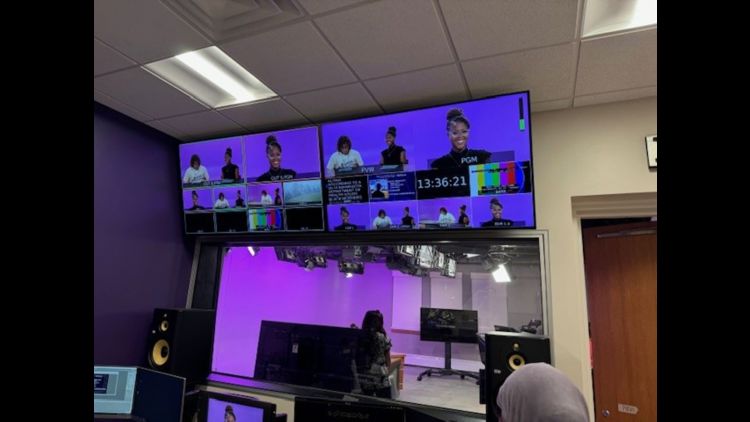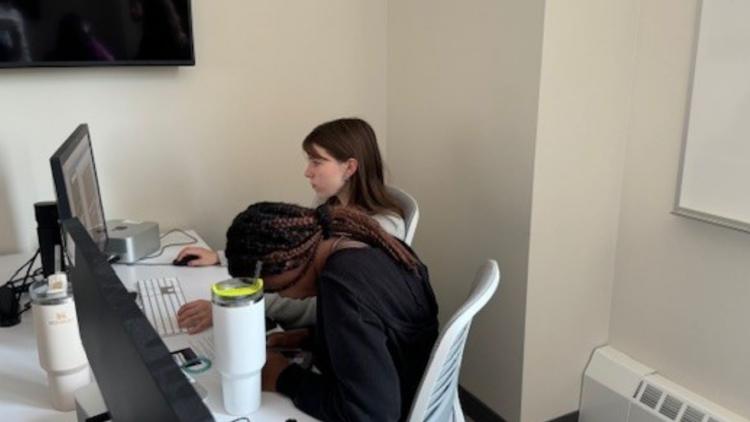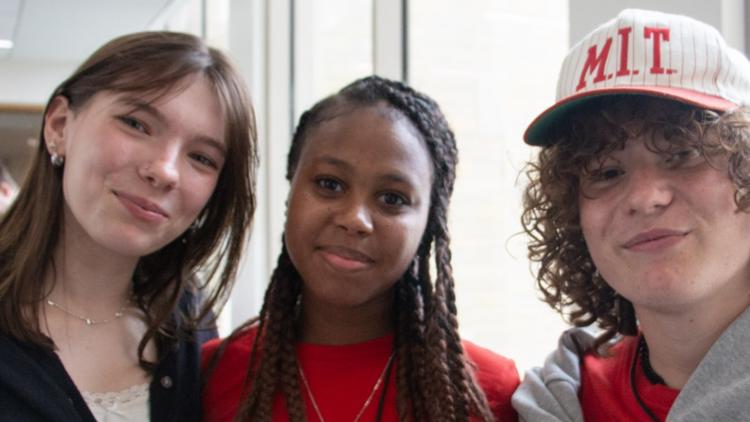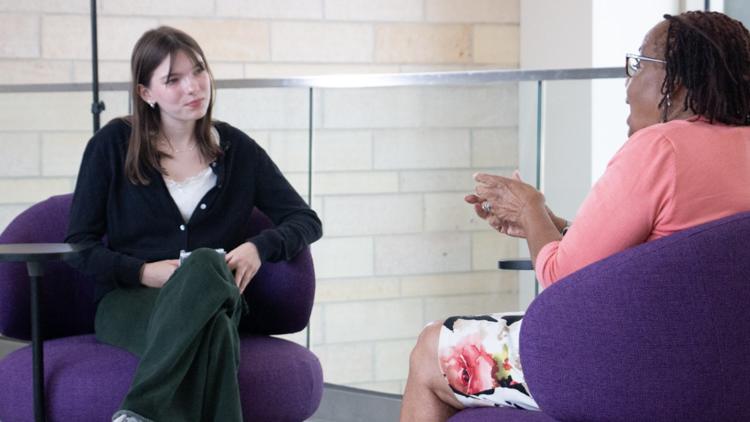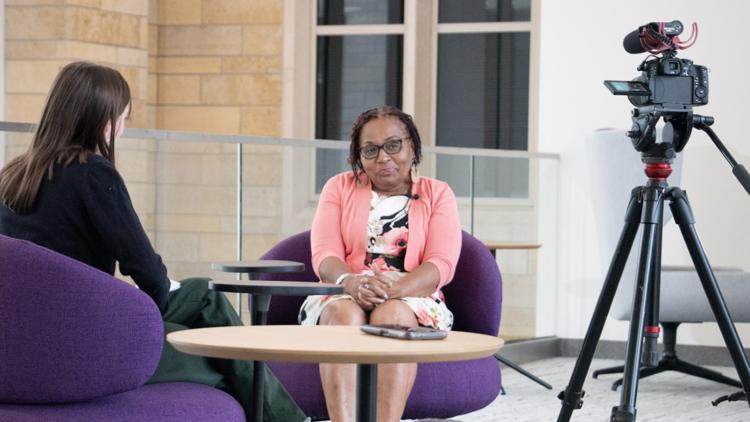ST PAUL, Minn. — Editor's note: KARE 11 is proud to partner with ThreeSixty Journalism to host aspiring young journalists who are our future storytellers.
The annual program pairs students with professional mentors to create television news reports on health topics. This year, KARE reporter Heidi Wigdalhl and photojournalist Tommy Platek mentored a group of young reporters covering Black maternal health.
According to a 2019 Minnesota Department of Health study, Black mothers giving birth in Minnesota are twice as likely to die due to pregnancy complications than their white counterparts.
Sameerah Bilal-Roby says she should have retired a long time ago, but instead, she’s too committed to improving maternal health, especially among women of color.
“(My) passion and commitment is addressing not only social determinants of health but addressing the crisis that is going on with the African American and American Indian community in birthing,” Bilal-Roby said. “Our project really focuses on that, on training and education.”
Bilal-Roby directs the Wilder African American Babies Coalition and Projects, which helps to combat the ongoing maternal health care inequalities and supports the healthy development of children and families. She began the work in 2005 and merged the coalition with the Wilder Foundation in 2017.
The coalition provides “training, education and resource distribution focused on building the capacity of health systems in Minnesota to provide culturally sensitive and high-quality maternal and infant care to Black and Brown families,” according to its website.
“Our work is really to impact systems and people who are training (mothers), how they interact with the families,” she said.
Bilal-Roby says she empathizes with those she serves and is committed to doing everything she can to combat injustices.
“You have a mother who is going through her period of developing the child and the racism in systems — housing, medical, food, clothing — that affects the mother,” she said. “And if it is not equal, and adequate, it’s going to (affect) her. All the stress around her is toxic stress and it will affect the baby in her womb when she delivers and as she is trying to raise her family.”
Bukata Hayes is vice president of racial and health equity for Blue Cross and Blue Shield of Minnesota, which funds the AABC. Hayes strategizes and integrates diverse, equity, inclusion and belonging efforts throughout the company. He said Minnesota does better than other states in maternal mortality rates, but “stark inequities” exist in Minnesota, too.
Black and Indigenous mothers have a higher rate of pregnancy-associated deaths. While Black Minnesotans make up 13% of the birthing population, they represent 26.7% of pregnancy-associated deaths. American Indians represent 1.7% of birthing people, but 12% of deaths, according to the same MPH study.
“AABC not only supports our goals of advancing maternal health equity and equitable access to health care, but they also exemplify the importance of investing in community-led work,” Hayes said. “It’s community members who hold the solutions to the challenges they face and are creating pathways to health and healing.”
Bilal-Roby says the healthy development of babies requires healthy circumstances for families. Like plants, children are a product of their environment. AABC offers training and education primarily for healthcare providers. People often say a person is in the best hands when they are being cared for by a doctor, but she says mothers of color often aren’t.
AABC offers doula training, crisis training and perinatal care and education to support Black and Brown communities. It also offers both children and adults training on youth mental health and resilience.
“The causes of racial Inequities in maternal health are multifaceted, but they speak to the increased barriers that Black and Indigenous communities face in accessing health care and the direct role systemic racism plays in determining health outcomes,” Hayes said.
Daphney Kleinschmit contributed to this report.

